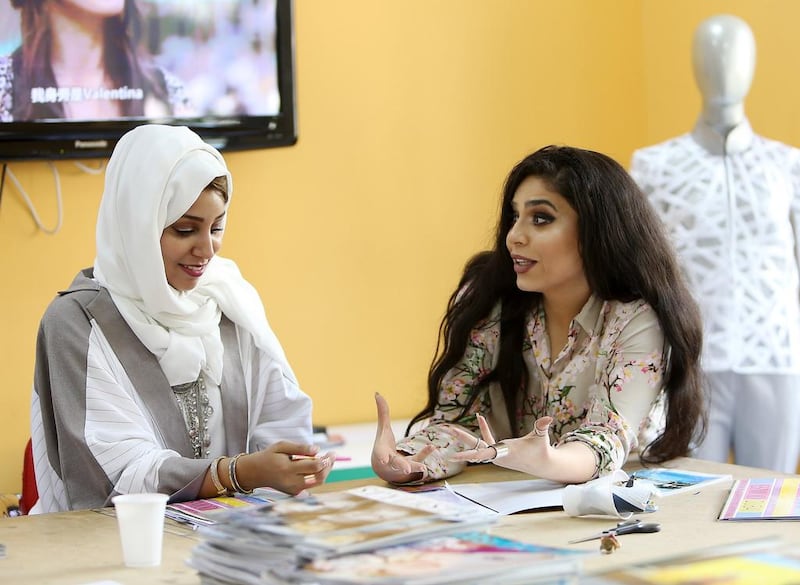DUBAI // Students at Esmod Dubai, the UAE branch of the French fashion school, are learning about the challenges, intricacies and delights of Islamic clothing.
The recently launched iFash course, the country’s first Islamic fashion design programme, offers students the chance to spend three months immersed in the world of regional style and, hopefully, come up with ways to develop traditional Middle Eastern clothing.
“I’m Muslim and as a Muslim I think we need more choice,” said Haby Sow, one of the first to sign up for the course.
“I’ve been interested in fashion for many years but didn’t have time before. Also, I’m more interested in Islamic clothes than mainstream.
“In mainstream fashion, there are already plenty of designers – everyone can design trousers and skirts – but Islamic fashion hasn’t diversified yet, so there is a lot of work to do,” said the 36-year-old Parisienne who is also studying for a medical degree.
Another student, Melda Caner, 27, travelled from Turkey to enrol on the course.
She hoped to set up a fashion business and design her own range back home, where the Islamic fashion industry is growing rapidly.
“Dressing is a way of speaking and Muslim women want to speak too,” she said.
“Women want more choice, more diversity.”
Dubai-based designer Alia Khan, the founder and chairwoman of the Islamic Fashion and Design Council, which helped to develop the idea of iFash, is delighted to support the course.
“We are looking forward to several collaborations between IFDC and Esmod Dubai, where we foresee a future that will increasingly celebrate the beauty, grace and exciting demand of iFash,” Ms Khan said.
According to a report by Thomson Reuters, Muslims spent US$266 billion (Dh699bn) on designer clothing and footwear in 2013. That amount is expected to increase to US$484bn by 2019.
It was no surprise, then, that big-name clothing brands have been keen to get on board with this market.
DKNY launched a collection for Ramadan last year, while Tommy Hilfiger and Mango followed suit with a collection this year.
Ahmed Ammar, a Dubai-based designer for Aavva Fashion, said women in the Gulf were increasingly moving away from the traditional abaya.
“Islamic fashion collections are no longer about the abaya.”
The abaya, he said, was more a sign of respect and tradition that women want to uphold.
“Islamic fashion is drawing on more western influences now – such as the maxi dress, loose trousers, kaftans and high-waisted skirts – that the women in the UAE and the Gulf region have access to,” he said.
“They see what’s going on and want to be stylish and fashionable. They still want to look conservative and carry the Islamic principles, but following the latest trends.
“We have many requests from women to custom-make pieces based on our latest collections.”
Four women signed up for the course’s first intake of students and Amira Salim, iFash’s lecturer, expected more to join after the Eid holidays.
“There is a great demand for this here in Dubai,” she said.
“We need more than just ready-to-wear collections.
“We need things that can be shown on the runway and highlighted at the big shows.”
mswan@thenational.ae






